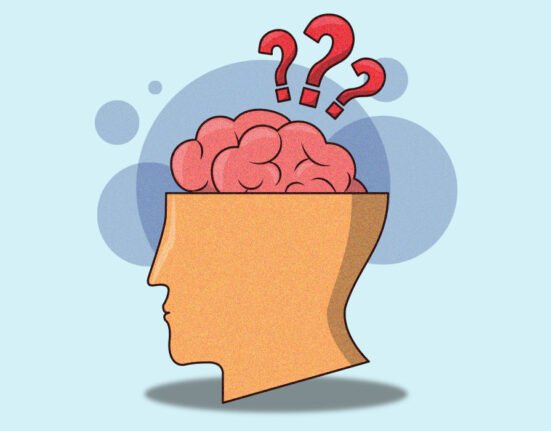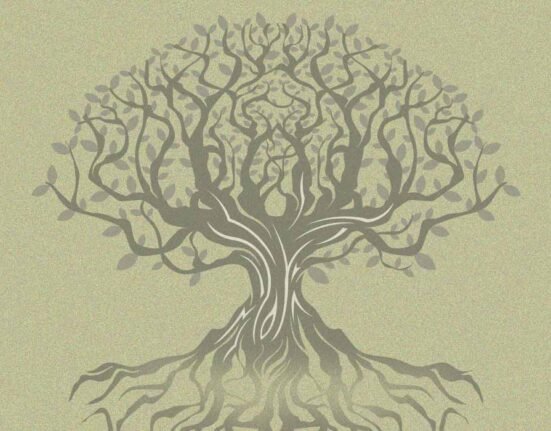Imagine walking into a room where five televisions are blaring at full volume, your phone is pinging with constant notifications, your friend is calling you through the telephone and strobe lights are flashing above your head. You try to pay attention to one thing, but your brain is being pulled in different directions all at once. This is what overstimulation feels like. It engages our brain to process more sensory, emotional and cognitive input that it can accommodate to function effectively (Capanna, 2024).
In line with the modern way of living and rise of technology, our brains are constantly stimulated through screens, notifications, ads, reels, news and more. This can affect us in more ways than we realise. As human beings, even if we are sitting still in an overtly loud or demanding environment, our nervous system is still taking in the same. This means that a person may feel easily irritated or bothered, have anxiety, focus difficulties, be emotionally drained and physical sensations might involve headaches, exhaustion, body aches and more (Castilleja, 2025).
Read More: Understanding and Managing Overstimulation in Children
The Paradox of Choice
American psychologist Barry Schwartz explains the paradox of choice as having too many choices accompanied by overwhelming choice overload, which can also contribute to anxiety, stress, and depression instead of happiness. The more options people have, the fewer decisions they make. This is how overstimulation works. Having too many options persuades us to divide our attention among them, which can make us not focus or enjoy any one thing. It also decreases the effort required to collect information and make good decisions. If a person is overstimulated, the chances of making a rash and quick judgment in an important situation increase (Psychology Today, 2024).
The idea of having ‘too much’ or too many options also tends to leave an individual unsatisfied or unfulfilled. This can lead to increased stress, decision paralysis, lower satisfaction and greater feelings of regret or dissatisfaction. It is a recurring process in our day-to-day. An individual can spend so long scrolling through different online streaming platforms and then decide on the genre, subgenre and personalised recommendations. In one study, American subscribers reported spending an average of 23 minutes daily just browsing. In the end, the individual often falls back into their comfort zone and does not make any choice at all. This paradox of choice and under fulfilment contributes to so much wasted time and missed opportunities (The Effects of Overstimulation, 2025).
Causes and Emotional Impact of Overstimulation
Before diving into the emotional and psychological manifestations of overstimulation, we must first understand how it occurs. There are various ways in which overstimulation can occur. A loud environment, cognitive dissonance, bright light, various mental health diagnoses such as ADHD, Autism Spectrum Disorder, or PTSD and many more (Littman, 2025).

Overstimulation arises in the backdrop of multiple options, yet leaves an individual fulfilled, taking a huge mental and emotional toll. It can entail emotional shutdown, anxiety, panic, feeling overwhelmed and irritable. Overstimulation activates the fight or flight response. If we overload our brains with all sorts of sensory information, the brain will either try to protect itself or simply shut down to deal with as much information as it can handle.
The brain must react to all sorts of information that can be combined, which will create a sense of being overwhelmed or fatigued. Over-stimulating environments or stimuli coming as once can feel very much like separation or withdrawal. If not derailed at the outset, these symptoms can severely contribute to burnout or anxiety disorders (Capanna, 2024).
Social Withdrawal, Unfulfillment, and the Role of Rest
Feeling unfulfilled is also likely when the needs for rest, quiet, and regulation are unjustly addressed. Disconnect, social avoidance, and withdrawal do not help social disengagement; rather, they help manage the feelings of isolation and meaningful connections. Individuals who encounter social overstimulation often use maladaptive social coping like withdrawal or avoidance, which is loneliness and unfulfillment in the long term protective in the short term.
Those who are restless, retreating, and overwhelmed in the pursuit of recuperation restrict themselves to a slate of activities that may be interesting, bordering on satisfaction or purpose, and as a result, do not feel fulfilled, even after rest periods. This sense of unfulfillment in rest periods connects the desire to achieve disengaged, while the desire for regulation remains unattended, there’s a deep sense of dissatisfaction, which is certainly amplifying the regret (Castilleja, 2025).
Read More: Psychology of Growing Positively Out of Regret: A Guide
The Disconnect Between Stimulation and Fulfilment
The disconnection between stimulation and fulfilment comes from how the brain’s reward system works. Specifically, the role of dopamine, which drives motivation and the pursuit of rewards, does not equate to the source of pleasure. While dopamine is pleasure-inducing, it does not govern the actual feeling of pleasure. Research indicates it is primarily concerned with wanting or salience—the pull towards reward. That difference makes sense of the phenomenon whereby, in a bid to capture a dopamine surge, highly stimulated activities like gaming, shopping, and substance abuse are engaged in (Pleasure systems in the brain, n.d.). Particularly, the presence of ADHD contributes to this phenomenon.
Read More: The Four Perspectives That Shape Human Motivation
1. The Dopamine Trap
The lack of restraint from the stimulation provided by the modern environment, has one-click purchases, bursting with gratification, and endless content, intensifies the imbalance. It creates a dopamine trap, which consists of quicker reward cycles and lowered tolerance to boredom, reducing the ability to gain satisfaction from slower, more meaningful activities, the predominant factor (Littman, 2025). This distorted perception equates contentment to stimulation, neglecting more profound, fulfilling realities (Dopamine vs. Fulfilment, 2025).
2. Path to True Fulfilment

True fulfilment, in contrast to instant gratification, is driven by enduring efforts, personal motivations, and social relationships. Fulfilment is destined to neurochemicals such as endorphins (stress-reducers), oxytocin (bonding “love hormone”), and serotonin (mood-stabiliser). A deeper and longer-lasting form of well-being comes through relationship-building, mindfulness practice, and working toward a personal goal. The embodied “rebalancing” of drive, to allow for alternative forms of fulfilment, requires fulfilling values-based goals, minimising technology/internet distractions, and engaging in deep work of nature. Finally, it is important to acknowledge that dopamine fuels the chaser for rewards, whereas fulfilment, when driven by purpose, is the source of authentic and lasting fulfilment (Psychowellness Centre, 2025).
Read More: How to Stay Focused in a World Full of Distractions
Finding Balance and Meaning
Overstimulation as well as underfulfillment, the two extremes, the brain needs to avoid both cognitive overworking and underworking, as well on the contrary physical. This means both the brain and the body need to focus. Irresistible rest appears as sensory overload, mental burnout, restlessness or boredom. Quantifying the states above and putting rest and overwork strategies helps in recovery. In motion engage relaxation, tackle breathing to small focus quotas with the small burst emphasis. Behaviour like quiet periods, scheduled breaks, and focused time quotas.
Using the time blocking technique or Pomodoro helps avoid burnout and focus drifts as well. In streams to avoid boredom, the quiet fulfilment needs to be shifted. Mindfulness and self-compassion are useful to balance. Support, encourage and ask when in this focus. Balancing can be defined as a practice of responding and staying boxer helps focus the mind. Life can be and needs to be meaningfully active about (The Effects of Overstimulation, 2025).
Conclusion
In many respects, modern living consists of more stimulation than our minds and bodies were designed to experience. Constant stimulation, myriad choices, and immediate dopamine rewards often keep us busy. But if we engage in greater stimulation of the mind than we were built to handle, we often don’t feel satisfied. We might think we are busy in a good way, but busyness does not mean fulfilment.
On the contrary, fulfilment comes from and can be built slowly via perishables—nurturing relationships, slow progression toward meaningful outcomes, and opportunity for rest and reflection. In navigating between stimulation, rest, and reflection, we can move to a life that is less “always on” and more “full” and “worth” (Capanna, 2024; Psychowellness Centre, 2025).
Read More: Building Hard-Working Mindset: Psychology, Neuroscience, and Effective Habits
FAQs
1. What are some of the possible effects of overstimulation on mental health?
Some common effects include irritability, anxiety, fatigue, difficulty concentrating, and physical symptoms (headaches, aches and pains, etc.). Continuous overstimulation can result in burnout, anxiety disorders, and depression.
2. Why do I still feel unfulfilled when I rest?
If one is just taking a rest from overstimulation and not engaging with deeper needs for connection, purpose, and regulation, one may still feel unfulfilled. True rest creates a mindful balance, as opposed to simple withdrawal.
3. How does dopamine impact overstimulation?
Dopamine drives the “wanting” or “reward-seeking” drive, which gives instant gratification dopamine experiences, like scrolling, shopping, and gaming, that seem rewarding, but don’t create long-lasting satisfaction, creating an endless cycle of craving more stimulation.
4. What creates fulfilment?
A fulfilled life has durability underpinned by wired neurochemicals such as oxytocin, serotonin, and endorphins. Cultivating solid relationships, achieving significant, meaningful aspirations, retraining with mindfulness, and balancing work with real rest to create true satisfaction
5. What can one do to manage overstimulation in my daily life?
A few ways to manage overstimulation in daily life are minimising excessive notifications and screentime, implementing time-blocking or Pomodoro to focus attention, scheduling quiet times and breaks, creating mindfulness or relaxation practice and spending time in nature and engaging in activities that align with one’s own values.
References +
Capanna, R. (2024, December 23). Overstimulated and Understimulated Nervous Systems | Dr. Roseann. Dr. Roseann Capanna-Hodge. Retrieved August 31, 2025, from https://drroseann.com/overstimulated-and-understimulated/
Castilleja, R. (2025, July 3). Addressing Overstimulation – Mental Health Hotline. National Mental Health Hotline. Retrieved August 31, 2025, from https://mentalhealthhotline.org/addressing-overstimulation/
Dopamine vs. Fulfilment: Choosing Your Drive Mindfully | Psychowellness Centre. (2025, July 8). Psychowellness Centre. Retrieved August 31, 2025, from https://www.psychowellnesscenter.com/Blog/dopamine-vs-fulfillment-choosing-your-drive-mindfully/
The Effects of Overstimulation and How to Regain Control. (2025, May 19). Heal Your Nervous System. Retrieved August 31, 2025, from https://healyournervoussystem.com/effects-of-overstimulation/
How to Find Your Sensory Goldilocks: Achieving the “Just Right” Fit. (2024, July 30). Psychology Today. Retrieved August 31, 2025, from https://www.psychologytoday.com/us/blog/the-neurodivergent-psychologist/202407/how-to-find-your-sensory-goldilocks-achieving-the-just
Littman, E. (2025, July 28). Brain Stimulation and ADHD / ADD: Cravings and Regulation. ADDitude. Retrieved August 31, 2025, from https://www.additudemag.com/brain-stimulation-and-adhd-cravings-dependency-and-regulation/
Pleasure systems in the brain – PMC. (n.d.). PubMed Central. Retrieved August 31, 2025, from https://pmc.ncbi.nlm.nih.gov/articles/PMC4425246/













Leave feedback about this